
San Marco: The Heartbeat of Venice
San Marco is the vibrant and historic center of Venice, Italy. This neighbourhood is renowned for its iconic landmarks, including the majestic St. Mark's Basilica and the grandeur of St. Mark's Square. As you stroll through its narrow streets and elegant piazzas, you will feel the rich history and culture that permeates every corner. Venice's most famous square, St. Mark's Square, is the perfect starting point for your adventure. Here, you can marvel at the intricate mosaics of St. Mark's Basilica and take in the stunning views from the Campanile, the bell tower that offers panoramic vistas over the city. The square is also home to the Doge's Palace, a masterpiece of Gothic architecture that tells tales of the city's storied past. Beyond the square, San Marco's labyrinthine alleys are filled with charming shops, cafes, and restaurants. Enjoy a coffee at the historic Caffè Florian, one of the oldest cafes in Europe, or indulge in a delicious gelato as you explore the area's hidden gems. Don't miss the chance to take a gondola ride along the picturesque canals and experience the romance of Venice from the water.
Local tips in San Marco
- Visit St. Mark's Basilica early in the morning to avoid the crowds.
- Purchase a combined ticket for the Doge's Palace and the Campanile for a seamless experience.
- Wear comfortable shoes, as you'll be doing a lot of walking on cobblestone streets.
- Take a gondola ride in the evening for a more peaceful and romantic experience.
- Try the traditional Venetian dish, risotto al nero di seppia (squid ink risotto), at a local restaurant.
San Marco: The Heartbeat of Venice
San Marco is the vibrant and historic center of Venice, Italy. This neighbourhood is renowned for its iconic landmarks, including the majestic St. Mark's Basilica and the grandeur of St. Mark's Square. As you stroll through its narrow streets and elegant piazzas, you will feel the rich history and culture that permeates every corner. Venice's most famous square, St. Mark's Square, is the perfect starting point for your adventure. Here, you can marvel at the intricate mosaics of St. Mark's Basilica and take in the stunning views from the Campanile, the bell tower that offers panoramic vistas over the city. The square is also home to the Doge's Palace, a masterpiece of Gothic architecture that tells tales of the city's storied past. Beyond the square, San Marco's labyrinthine alleys are filled with charming shops, cafes, and restaurants. Enjoy a coffee at the historic Caffè Florian, one of the oldest cafes in Europe, or indulge in a delicious gelato as you explore the area's hidden gems. Don't miss the chance to take a gondola ride along the picturesque canals and experience the romance of Venice from the water.
Iconic landmarks you can’t miss
St. Mark's Square
Explore St. Mark's Square, Venice's iconic plaza, surrounded by stunning architecture, vibrant culture, and historic landmarks that define the city's charm.
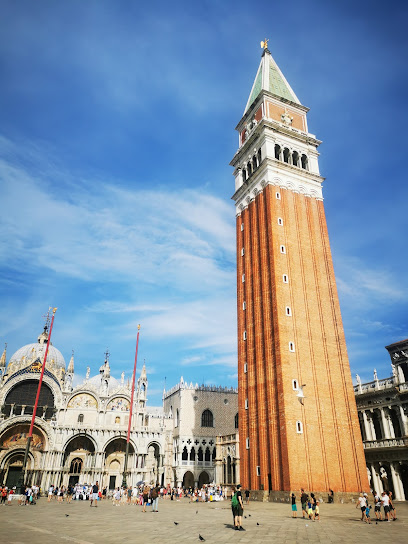
Doge's Palace
Discover the opulence of Doge's Palace, a historical gem in Venice featuring stunning architecture, rich art, and captivating tales from the heart of the Venetian Republic.
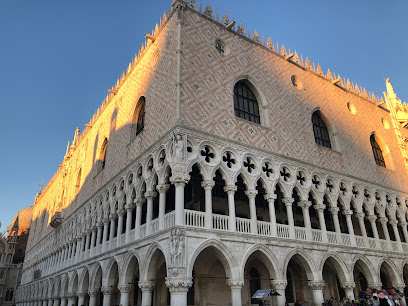
Saint Mark's Basilica
Explore the architectural splendor and historical significance of Saint Mark's Basilica, Venice's iconic landmark adorned with stunning mosaics.
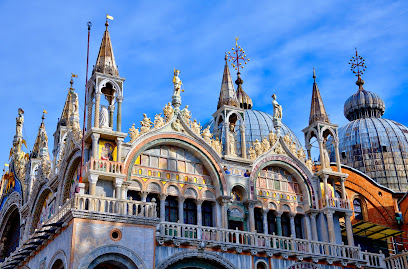
St Mark's Campanile
Experience breathtaking views and the rich history of Venice at the iconic St Mark's Campanile, a must-visit landmark in the heart of the city.
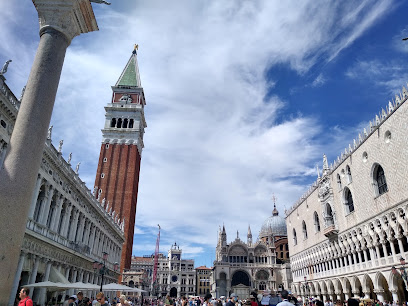
Clock Tower
Discover the breathtaking Clock Tower in Venice, a historic marvel that embodies the essence of Venetian architecture and culture.
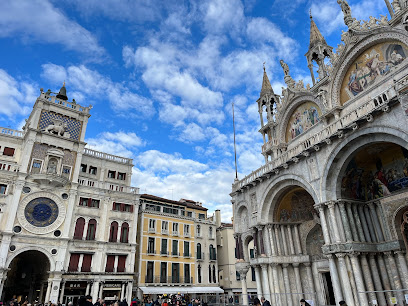
Colonna di San Marco
Discover the Colonna di San Marco, a majestic historical landmark in Venice, symbolizing the city's rich heritage and cultural significance.
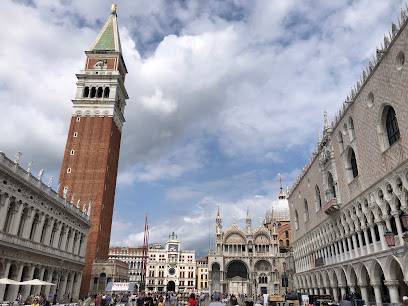
Carmagnola Head
Discover the stunning Carmagnola Head in Venice's Piazza San Marco, a captivating blend of artistry and history in the heart of this enchanting city.
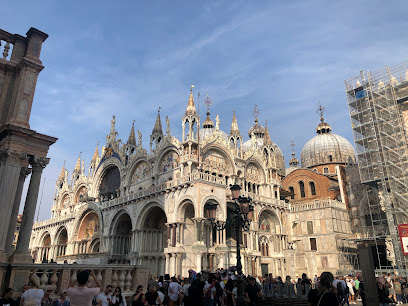
Campiello del Carro
Experience the serene charm of Campiello del Carro, a hidden historical gem in Venice, perfect for capturing the essence of Italian culture and heritage.
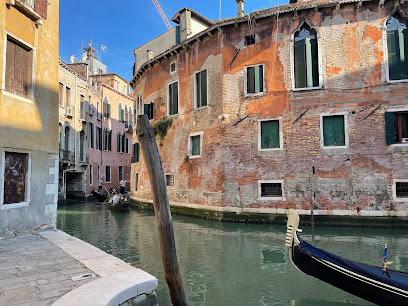
Sestiere San Marco
Explore the enchanting charm of Sestiere San Marco, Venice's historical district, brimming with iconic landmarks, vibrant culture, and timeless beauty.
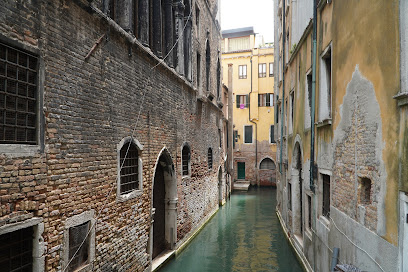
La Dogaressa Palazzo Venier Contarini
Discover the architectural splendor and historical significance of La Dogaressa Palazzo Venier Contarini, a true gem in the heart of Venice.
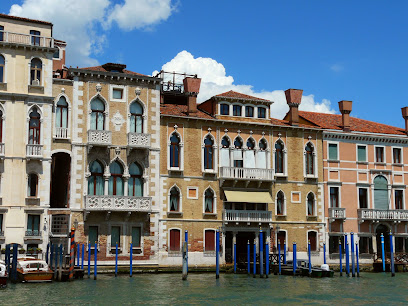
Unmissable attractions to see
St. Mark's Square
Explore St. Mark's Square, Venice's iconic plaza filled with stunning architecture, rich history, and vibrant culture, perfect for soaking in the city's charm.
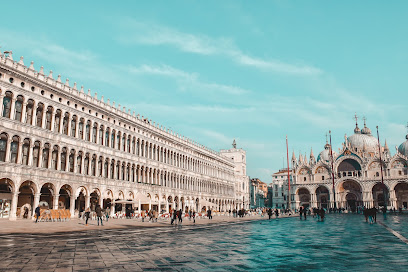
Museo Correr
Explore the vibrant history and art of Venice at Museo Correr, located in the heart of St. Mark's Square, showcasing the city's rich cultural heritage.
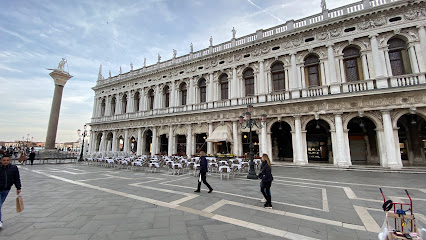
St. Mark’s Museum
Explore the artistic wonders of St. Mark's Museum in Venice, where history and culture come alive through exquisite collections and breathtaking architecture.
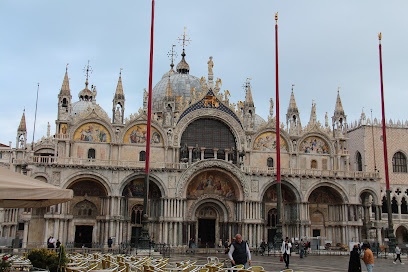
Palazzo Malipiero
Explore Palazzo Malipiero, an architectural marvel in Venice, showcasing the beauty and history of Gothic design in the heart of the city.
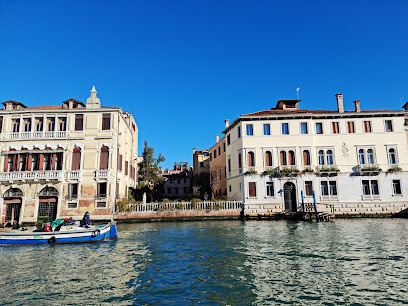
Essential places to dine
Trattoria Al Gazzettino
Experience authentic Italian cuisine at Trattoria Al Gazzettino in Venice—where fresh seafood meets traditional recipes in a cozy setting.
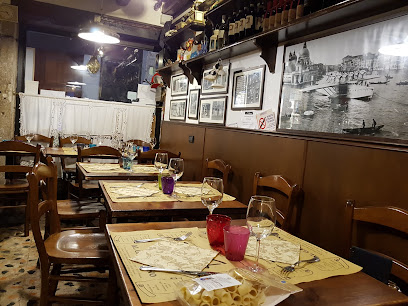
Da Mamo
Experience authentic Italian pizza in the heart of Venice at Da Mamo – where tradition meets taste.
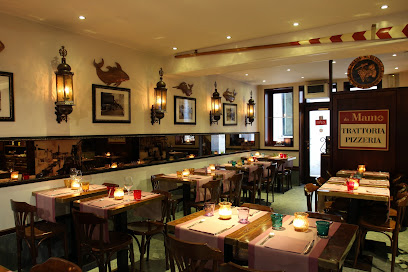
Bistrot de Venise
Experience the art of Venetian dining at Bistrot de Venise - where tradition meets culinary innovation in a romantic setting.
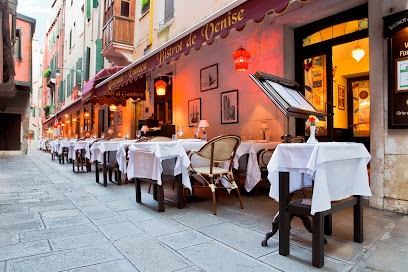
Ristorante Centrale Pizzeria
Experience authentic Italian cuisine at Ristorante Centrale Pizzeria in Venice – where every bite tells a story.
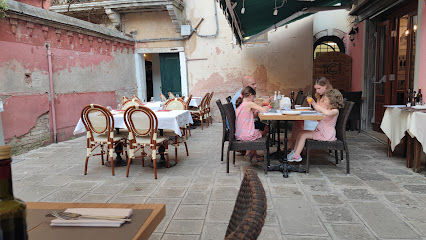
SEPA
Discover authentic Venetian cuisine at SEPA – where tradition meets modern deli delights in a charming setting.
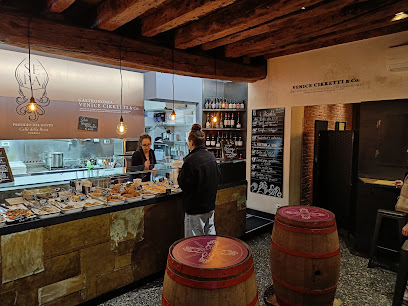
Ai Mercanti
Discover authentic Venetian flavors at Ai Mercanti, where every dish tells a story of tradition and culinary excellence in the heart of Venice.
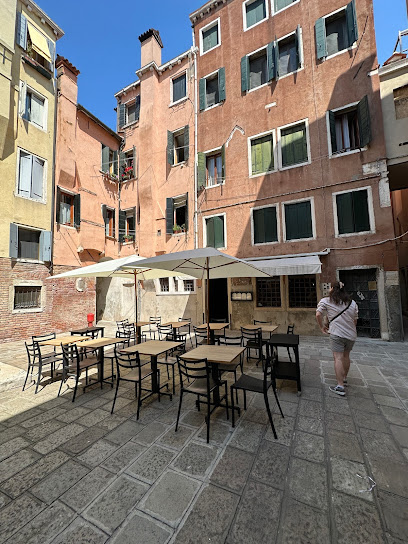
Al Chianti
Discover authentic Italian flavors at Al Chianti, where exquisite seafood meets traditional recipes in the heart of Venice.
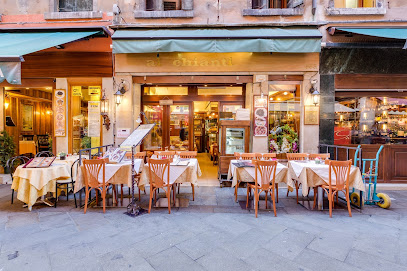
Osteria Enoteca San Marco
Experience authentic Italian cuisine and exquisite wines at Osteria Enoteca San Marco, a must-visit culinary destination in Venice.
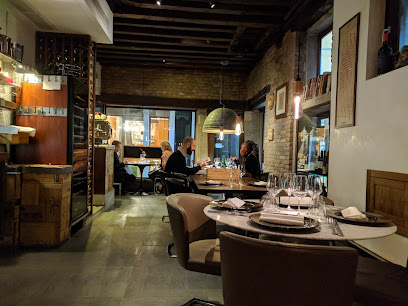
Restaurant La caravella
Indulge in authentic Italian and Venetian cuisine at Restaurant La Caravella, where every dish tells a story of tradition and passion.
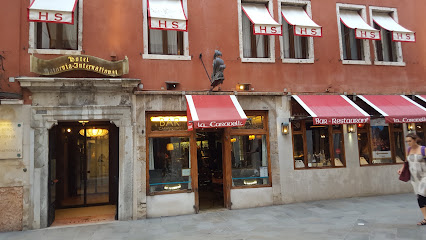
Ristorante Omnibus
Experience authentic Italian cuisine at Ristorante Omnibus in Venice - home to delicious pizzas and traditional dishes amidst breathtaking canal views.
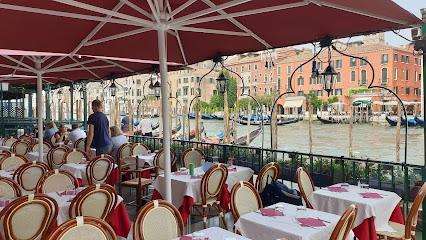
Gio's Restaurant & Terrace
Experience exquisite Italian cuisine at Gio's Restaurant & Terrace in Venice, where every meal is accompanied by stunning views and impeccable service.
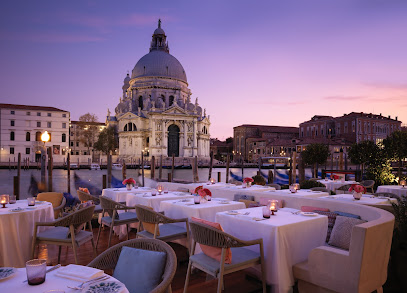
RistoPub Rossini
Discover RistoPub Rossini: A vibrant gastropub in Venice serving delicious Italian cuisine and live music for an unforgettable dining experience.
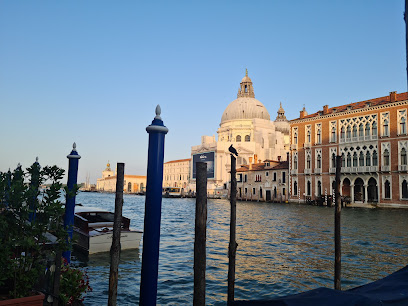
Restaurant Anonimo Veneziano
Experience authentic Venetian cuisine at Restaurant Anonimo Veneziano – where every dish tells a story of Italy's rich culinary heritage.
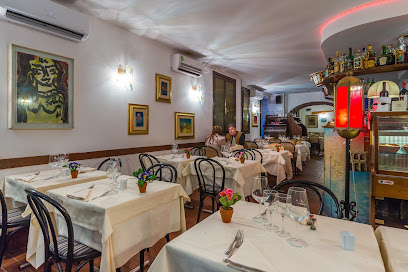
Markets, malls and hidden boutiques
San Marco 801
Discover the essence of Venice with unique souvenirs at San Marco 801, where artistry meets charm in every handcrafted piece.
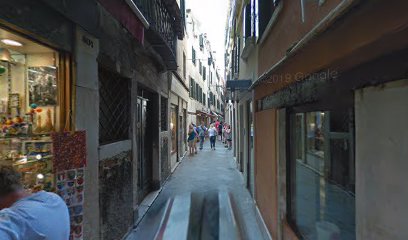
Gift Shop
Explore a delightful gift shop in Venice filled with unique souvenirs and local crafts that capture the essence of the city's rich culture.
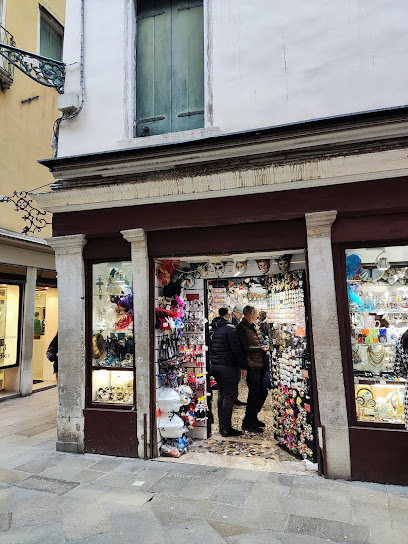
Gioja Antica Scrittura
Explore the charm of Gioja Antica Scrittura, Venice's exquisite gift shop offering unique artisanal treasures and unforgettable souvenirs.
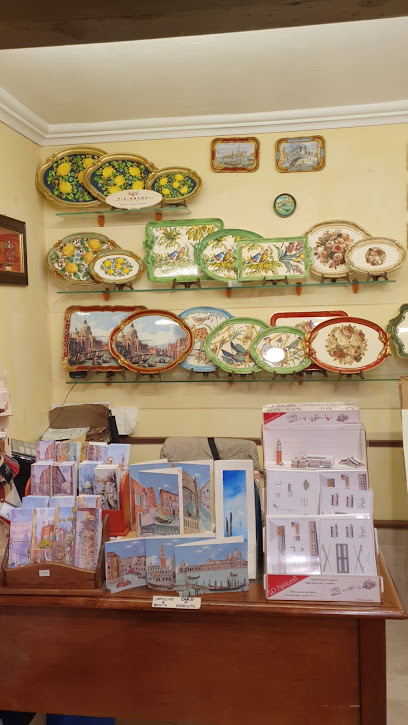
Giobagnara, Venezia
Explore Giobagnara in Venice for exquisite gifts and authentic Venetian craftsmanship, perfect for capturing the essence of your travels.
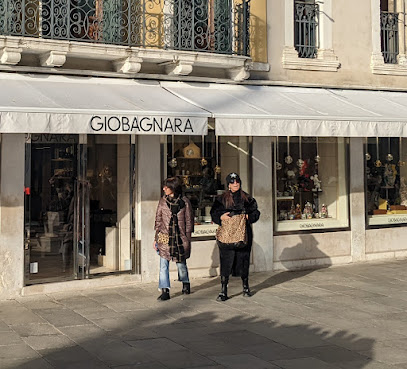
souvenir
Explore authentic Venetian souvenirs at a charming gift shop, featuring handcrafted masks, Murano glass, and unique treasures from Venice.
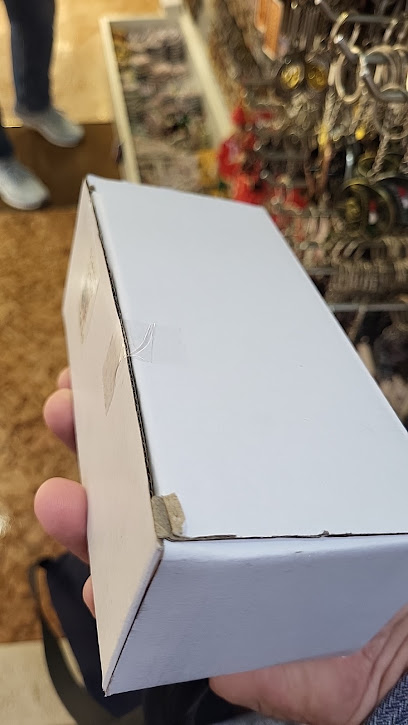
LEON DORO boutique
Discover the exquisite craftsmanship of Italian fashion at LEON DORO Boutique in Venice's historic Piazza San Marco.
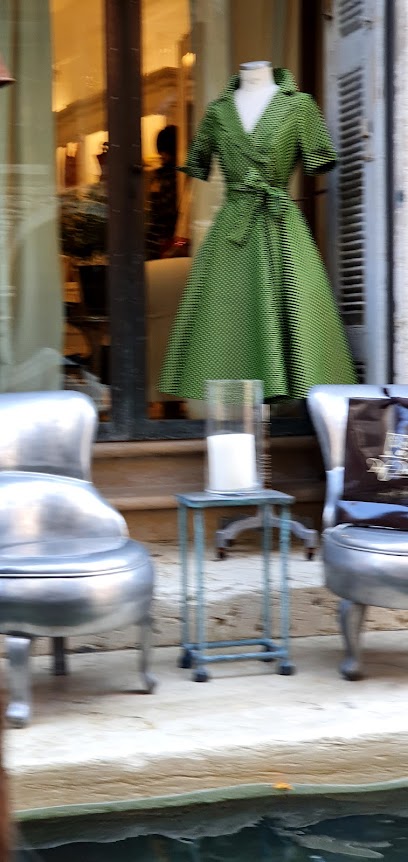
Souvenirs venecia low cost
Explore unique and budget-friendly souvenirs at Souvenirs Venecia Low Cost, a treasure trove for tourists in Venice.
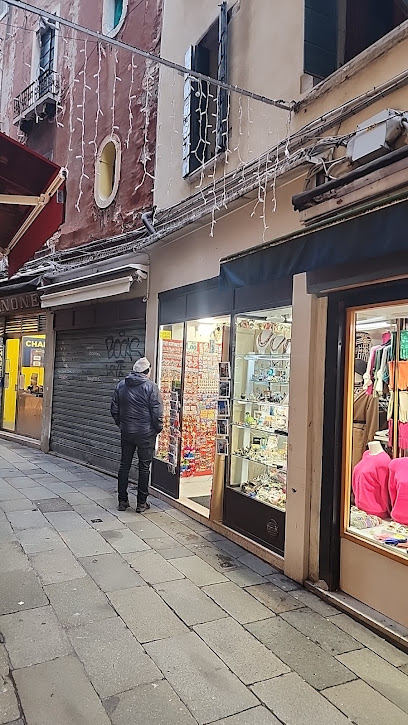
Yeasmin Souvenir - Smallest Shop in Venice
Discover authentic Venetian gifts at Yeasmin Souvenir, the smallest yet most charming shop in Venice, nestled in the heart of S. Marco.

Robe venise
Explore Robe Venise, your go-to gift shop in Venice for exquisite souvenirs, handmade masks, and locally crafted treasures.

Art Decò
Discover exquisite jewelry and unique gifts at Art Decò, the heart of Venetian craftsmanship in the enchanting city of Venice.
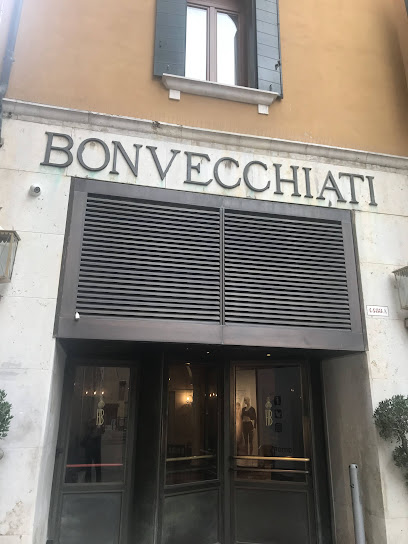
Essential bars & hidden hideouts
Devil’s Forest Pub
Discover the heart of Venetian nightlife at Devil's Forest Pub, where authentic cocktails and local charm blend seamlessly.
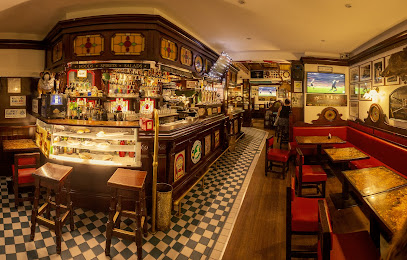
RistoPub Rossini
Discover RistoPub Rossini in Venice: a gastropub blending Italian flavors with live music for an unforgettable dining experience.
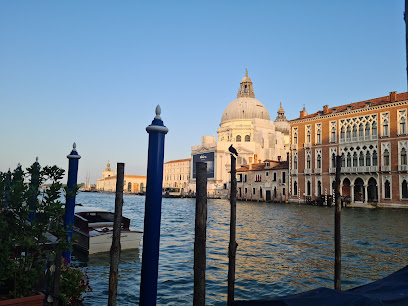
Bar Spritz
Bar Spritz: Discover the essence of Venice with refreshing drinks and a vibrant atmosphere at this charming bar.
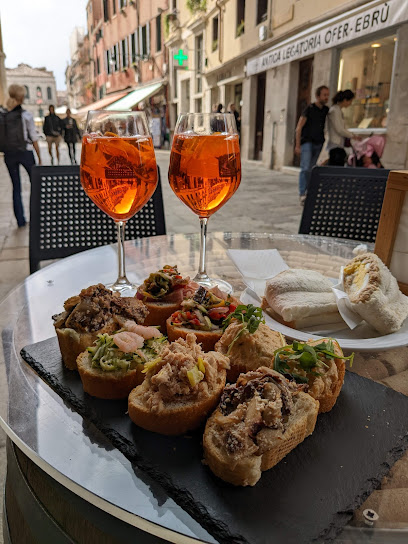
Ai Stagneri
Experience the authentic charm of Venice at Ai Stagneri, a cozy bar offering local wines and delightful snacks in a welcoming atmosphere.
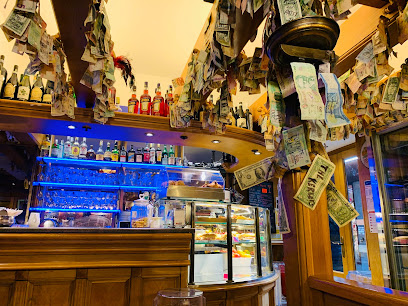
Bar Al Campanile
Experience the charm of Venice at Bar Al Campanile, where unique cocktails and warm hospitality await in the heart of the city.
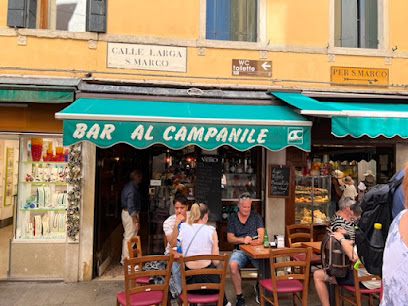
Blackjack Bar
Discover the enchanting ambiance of Blackjack Bar, a must-visit for wine lovers in the heart of Venice.
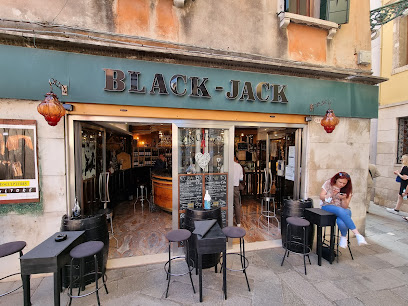
Il Salotto di San Marco
Experience authentic Venetian flavors at Il Salotto di San Marco, where exquisite small plates and crafted cocktails await in a charming atmosphere.
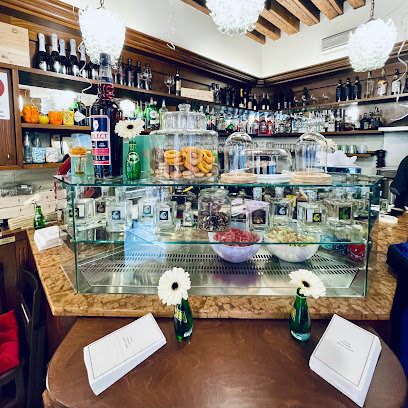
Bar Mio di Teso Mauro
Experience the heart of Venice at Bar Mio di Teso Mauro - a perfect blend of local charm and vibrant atmosphere in Piazza San Marco.
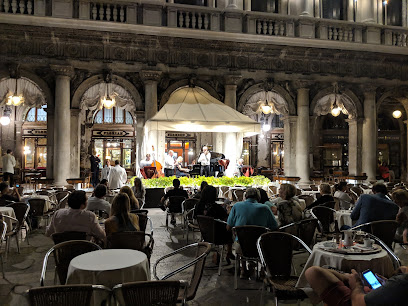
Bar Americano
Discover the enchanting Bar Americano in Venice, where classic cocktails meet vibrant atmosphere near Piazza San Marco.
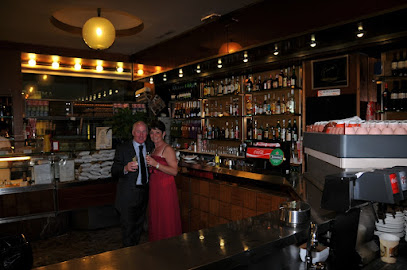
Arts Bar Venice
Experience the vibrant artistic spirit of Venice at Arts Bar, a unique bar offering creative cocktails and a lively atmosphere.
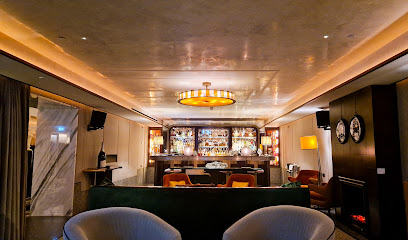
Local Phrases
-
- HelloCiao
[chow] - GoodbyeArrivederci
[ah-ree-veh-dehr-chee] - YesSì
[see] - NoNo
[noh] - Please/You're welcomePer favore/Prego
[pehr fah-voh-reh/preh-goh] - Thank youGrazie
[grah-tsyeh] - Excuse me/SorryScusi/Mi dispiace
[skoo-zee/mee dee-spyah-cheh] - How are you?Come stai?
[koh-meh stai] - Fine. And you?Bene. E tu?
[beh-neh. eh too] - Do you speak English?Parli inglese?
[pahr-lee een-gleh-zeh] - I don't understandNon capisco
[nohn kah-pee-skoh]
- HelloCiao
-
- I'd like to see the menu, pleaseVorrei vedere il menù, per favore
[vohr-reh-ee veh-deh-reh eel meh-noo, pehr fah-voh-reh] - I don't eat meatNon mangio carne
[nohn mahn-joh kahr-neh] - Cheers!Salute!
[sah-loo-teh] - I would like to pay, pleaseVorrei pagare, per favore
[vohr-reh-ee pah-gah-reh, pehr fah-voh-reh]
- I'd like to see the menu, pleaseVorrei vedere il menù, per favore
-
- Help!Aiuto!
[ah-yoo-toh] - Go away!Vai via!
[vah-ee vyah] - Call the Police!Chiama la polizia!
[kyah-mah lah poh-lee-tsyah] - Call a doctor!Chiama un dottore!
[kyah-mah oon doh-toh-reh] - I'm lostMi sono perso
[mee soh-no pehr-soh] - I'm illSto male
[stoh mah-leh]
- Help!Aiuto!
-
- I'd like to buy...Vorrei comprare...
[vohr-reh-ee kohm-prah-reh] - I'm just lookingSto solo guardando
[stoh soh-loh gwahr-dahn-doh] - How much is it?Quanto costa?
[kwahn-toh koh-stah] - That's too expensiveÈ troppo caro
[eh troh-poh kah-roh] - Can you lower the price?Puoi abbassare il prezzo?
[pwah-ee ahb-bahs-sah-reh eel preh-tsoh]
- I'd like to buy...Vorrei comprare...
-
- What time is it?Che ora è?
[keh oh-rah eh] - It's one o'clockÈ l'una
[eh loo-nah] - Half past (10)Le dieci e mezza
[leh dee-eh-chee eh meh-tzah] - MorningMattina
[maht-tee-nah] - AfternoonPomeriggio
[poh-meh-ree-joh] - EveningSera
[seh-rah] - YesterdayIeri
[yeh-ree] - TodayOggi
[oh-jee] - TomorrowDomani
[doh-mah-nee] - 1Uno
[oo-noh] - 2Due
[doo-eh] - 3Tre
[treh] - 4Quattro
[kwah-troh] - 5Cinque
[cheen-kweh] - 6Sei
[seh-ee] - 7Sette
[seh-tteh] - 8Otto
[oh-ttoh] - 9Nove
[noh-veh] - 10Dieci
[dee-eh-chee]
- What time is it?Che ora è?
-
- Where's a/the...?Dov'è...?
[doh-veh] - What's the address?Qual è l'indirizzo?
[kwahl eh leen-dee-ree-tsoh] - Can you show me (on the map)?Puoi mostrarmi (sulla mappa)?
[pwah-ee mohs-trar-mee soo-lah mahp-pah] - When's the next (bus)?Quando passa il prossimo (autobus)?
[kwahn-doh pahs-sah eel prohss-see-moh ow-toh-boos] - A ticket (to ....)Un biglietto (per ....)
[oon beel-lyet-toh pehr]
- Where's a/the...?Dov'è...?
History of San Marco
-
San Marco, the central district of Venice, is named after Saint Mark, the patron saint of the city. According to tradition, in 828 AD, the relics of Saint Mark were stolen from Alexandria, Egypt, and brought to Venice, where they were placed in the Basilica di San Marco, a symbol of the city's wealth and power. The basilica, with its stunning Byzantine architecture, became a central place of worship and a representation of Venice's aspiration to be a center of Christianity and commerce.
-
From the 9th century onward, San Marco became the political heart of Venice, with the Doge's Palace situated right next to the basilica. The Doge was the chief magistrate and leader of the Venetian Republic, and the palace served as a governmental hub. Over centuries, the Doge's Palace evolved in architecture and function, symbolizing the political power and maritime dominance of Venice during the Middle Ages and the Renaissance.
-
In the late 14th century, the Council of Ten was established in Venice, operating out of the Doge's Palace. This powerful governing body was responsible for maintaining state security and overseeing foreign relations. Their influence marked a transition to a more centralized form of governance, reflecting the complex political landscape of the time as Venice expanded its trade networks across Europe and the Mediterranean.
-
The Renaissance brought a surge of artistic and cultural activity to San Marco, as the district became a canvas for renowned artists like Tintoretto and Veronese. The basilica and the Doge's Palace were adorned with exquisite artworks, mosaics, and sculptures, showcasing Venice's wealth and commitment to art. This period solidified San Marco's reputation as a cultural center, attracting scholars and artists from all over Europe.
-
The fall of the Republic of Venice in 1797 to Napoleon marked the beginning of a decline for San Marco. However, in the 19th century, a renewed interest in Venetian history and culture led to extensive restoration projects. The Basilica di San Marco underwent significant renovations, and the area became a focal point for tourists and locals alike, as efforts were made to preserve its historical significance amid modern developments.
San Marco Essentials
-
San Marco is centrally located in Venice, making it easily accessible from other neighbourhoods. You can reach San Marco by taking a Vaporetto (water bus) from various points in the city. The closest Vaporetto stops are San Marco Vallaresso and San Marco Giardinetti. Walking is also a popular choice; from areas like Cannaregio or Dorsoduro, it's about a 20 to 30-minute stroll through picturesque streets and over charming bridges. If arriving from the train station, catch the Vaporetto Line 1 or Line 2 directly to San Marco.
-
San Marco is best explored on foot, as many of its attractions are within walking distance. The Vaporetto system is efficient for longer distances, and you can purchase single or multi-day passes. Bicycles are not common in Venice due to its pedestrian-centric layout and numerous bridges. Taxis are available but are limited to the water taxis, which can be more expensive. When exploring, consider downloading a map app to help navigate the winding streets.
-
San Marco is generally safe for tourists, but be cautious in crowded areas like St. Mark’s Square and the Rialto Bridge, where pickpocketing can occur. Avoid poorly lit alleys at night, especially those leading away from main tourist paths. It is also advisable to be aware of your surroundings and not to display valuables openly.
-
In case of an emergency, dial 112 for police, fire, or medical assistance. The local hospital is located in the nearby neighbourhood of Giudecca. For minor health issues, pharmacies are available throughout San Marco. It is advisable to have travel insurance that covers medical emergencies.
-
Fashion: Do dress appropriately when visiting religious sites, avoiding shorts and sleeveless tops. Religion: Do respect local customs, especially in churches; refrain from loud conversations. Public Transport: Do purchase tickets before boarding Vaporetto; don't attempt to board without a valid ticket. Greetings: Do greet locals with a friendly 'Buongiorno'. Eating & Drinking: Do try cicchetti (Venetian tapas) at local bacari; don't eat while walking, as it's considered disrespectful.
-
To experience San Marco like a local, visit the smaller cafes and bacari away from the main square for authentic Venetian cuisine. Engage with local artisans and shop for unique handmade goods in the less touristy areas. Attend a Scuola (local craft school) workshop to learn about Venetian glass-making or mask-making. If possible, visit during the early morning or late evening to avoid crowds and enjoy a quieter St. Mark’s Square.
Nearby Cities to San Marco
-
Things To Do in Piran
-
Things To Do in Portorož
-
Things To Do in Izola
-
Things To Do in Verona
-
Things To Do in Rovinj
-
Things To Do in Koper
-
Things To Do in Ravenna
-
Things To Do in Trieste
-
Things To Do in Nova Gorica
-
Things To Do in Sežana
-
Things To Do in Bologna
-
Things To Do in Pula
-
Things To Do in Modena
-
Things To Do in Postojna
-
Things To Do in Rimini










